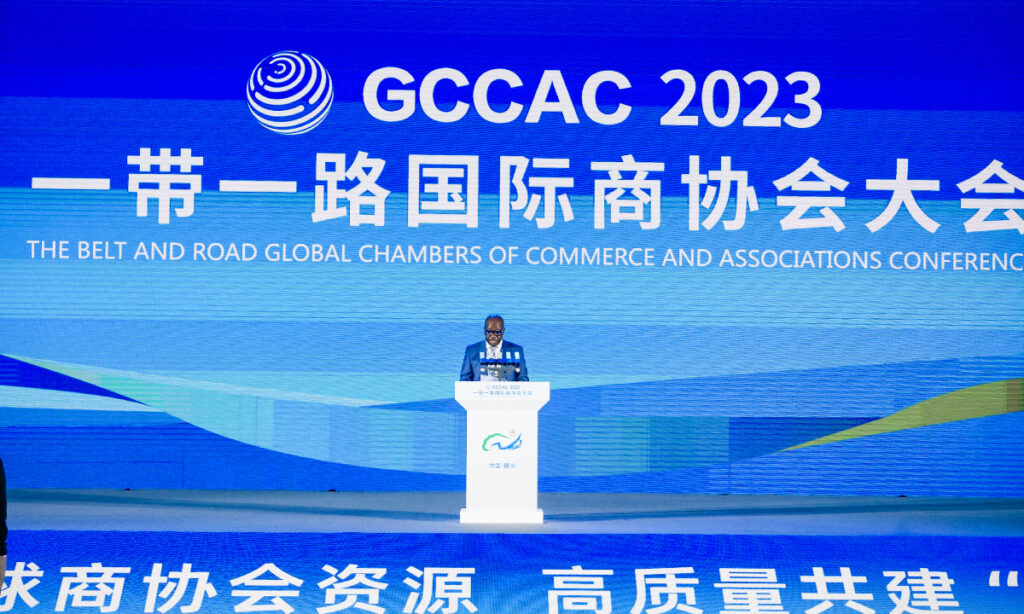Obaseki made the remarks during the Belt and Road Global Chambers of Commerce and Association Conference (GCCAC), which is the world’s first international cooperation and exchange platform with chambers of commerce, industry associations and other social organizations as major participants. The conference aims to harness the resources of chambers of commerce as BRI cooperation advances, and explore new international cooperation opportunities.
Obaseki noted that the BRI not only advances Nigeria’s economy, but also helps with infrastructure construction, transportation and logistics.
Over the past 10 years, Nigeria has seen the positive outcomes of the initiative with major infrastructure projects built by Chinese companies such as the Lagos-Ibadan railway, the terminal of the Lagos International Airport as well as a light rail project in Lagos, Obaseki said.
The free trade zones co-built by Chinese companies in Nigeria have provided financial support for economic development, he noted. “Our state has also been fortunate to benefit from the BRI as we have had rapid industrial development, thanks to the numerous industrial companies from Fujian, led by Yongxing Steel, which has significantly promoted industrial development in my state and helped create new jobs,” Obaseki said.
The governor also attended a sub-forum of the GCCAC on Wednesday, which focused on China-Africa economic cooperation. He said at the forum that a number of enterprises from Fujian have taken root in Edo State, focusing on the manufacturing sector, a vital industry for the local economy.
A decade on, more Fujian firms have invested in the state, engaging in different fields including ceramic products, glass manufacturing and wood industry, which promoted local social development, making the state an important building materials center in southern Nigeria, Obaseki said.
The digital economy and e-commerce have opened a new channel for China-Africa cooperation, Obaseki noted, adding that China has rich experiences and achievements in developing the digital economy in terms of digital infrastructure, mobile payments and setting up e-commerce platforms. A number of Chinese high-tech enterprises including Huawei and ZTE have rolled out telecom networks in the country.
In the area of the digital economy, the participation of Chinese enterprises has enhanced Nigeria’s digital transformation and competitiveness, Obaseki said, noting that the state is looking forward to more cooperation in manufacturing and digitalization with Fujian.
Global Times




